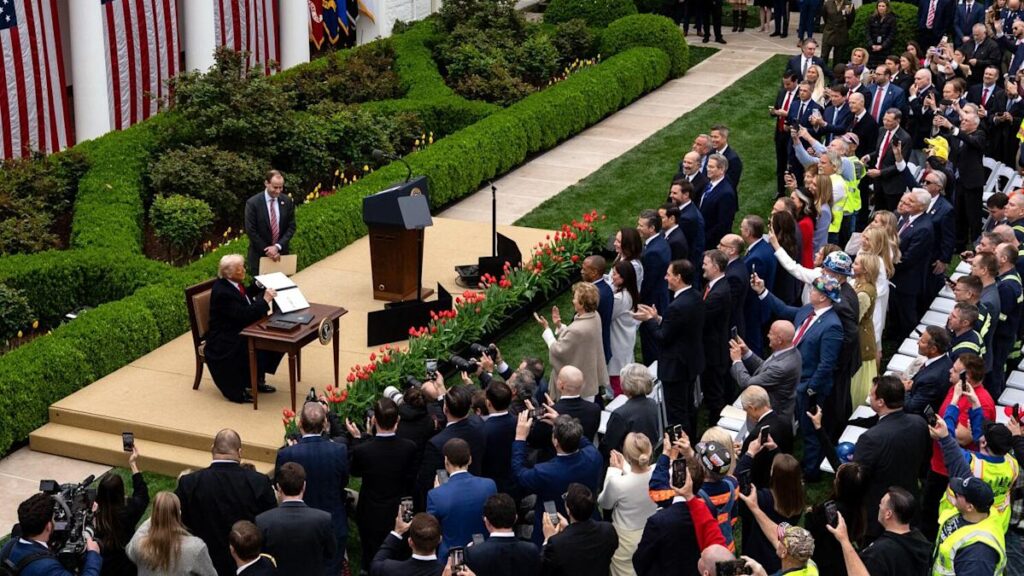(Bloomberg) — UBS Group AG strategists expect the impact of US President Donald Trump’s tariffs to push corporate-bond spreads to levels last seen during the early part of the pandemic.
Most Read from Bloomberg
Concerns that tariffs will significantly slow down the global economy shook credit markets last week, with gauges that track credit-default swaps surging by the most since March 2023 in both the US and Europe. Average high-grade spreads ended Friday at 1.09 percentage points or 109 basis points, the highest since August 2024, according to Bloomberg index data. Junk spreads ended the week at 427 basis points, the highest level since November 2023.
UBS now sees the possibility of corporate-bond spreads — or the added premium over US Treasuries investors get paid to hold riskier debt — reaching between 160 to 170 basis points for high-grade and 600 to 650 basis points for junk debt by mid-2025, strategists including Matthew Mish wrote in a note on Monday.
Bloomberg indexes that track corporate bond spreads haven’t reached those levels since the Covid-19 pandemic in 2020. The Federal Reserve typically starts to worry when the investment-grade spread reaches closer to 150 basis points.
“Credit spreads can be volatile in the months heading into the start of a recession,” the strategists wrote.
Wall Street’s fear gauge — the CBOE Volatility Index, or VIX — jumped higher than 60 overnight after closing around 45 Friday, and is currently closer to 50, well above the long-term average of 20. The levels for VIX and junk bond spreads have been diverging in recent years, partly because more leverage has been added in the stock market while junk issuers have been more disciplined, which has boosted valuations, Mish said in an interview Monday.
Activity across primary markets, meanwhile, has slowed to a halt amid the volatility. For the third day in a row, investment-grade syndicate desks have been advising clients to refrain from any capital-raising efforts in the new issue bond market. In junk, Patterson Cos.’s $1 billion offering was the only deal that has launched since early last week as investors distance themselves from borrowers threatened by the tariffs.
Investors usually start to get more concerned about the broader capital-market conditions when primary markets stay shut for longer than four to five weeks, Mish added.


